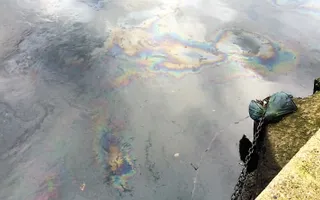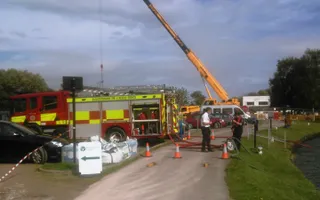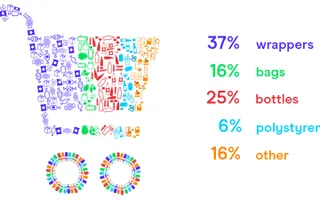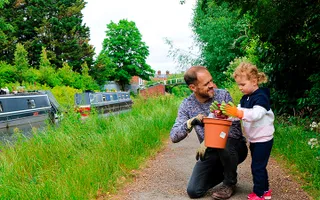All our waterways are vulnerable to pollution, from small, accidental spills to major problems causing significant environmental damage. Around 300 pollution incidents are reported to us every year, and can cost anything from £50 to £50,000 each to resolve.
Fortunately, major incidents such as the shocking quantities of oil poured into a surface drain connected to Pymmes Brook that ran into the River Lee early in 2018 are not common. However there are many more smaller incidents which can be equally damaging to the environment. Most of these incidents are preventable. Whilst boaters were not the cause of the 2018 River Lee incident, they had a vital role in reporting and helping to clean up the damage.
Our priorities as boaters should be to prevent creating any pollution, by keeping our boat's fuel and oil out of the water. Both are toxic to fish and other aquatic life; even small quantities can cause lasting problems for wildlife.
Best practice
- Always check your bilge before pumping it out. If there's an oily sheen to it, only pump it out into a suitable container, not into the cut. You will need to search for a specialist waste carrier to dispose of oil contaminated bilge water.
- Transfer fuel and oil in proper containers, metal or approved plastic only.
- Dispose of waste oil and oil contaminated bilge water in the appropriate place. We don't run a used oil or bilge waste disposal service. In fact, we spend thousands of pounds every year disposing waste that has been left behind by boaters. Please take your waste oil to the nearest dedicated local authority site or check http://www.oilcare.org.uk/ to find your closest disposal point. Alternatively, small auto workshops near the canal are often prepared to take old oil, which they put in their oil recycling tank.
- This may sound obvious but please use a funnel when pouring fuel or oil and pour slowly and steadily, you'll be much less likely to spill it. Use a fuel collar when refuelling to catch drips too.
- Use a bilge sock in your drip tray and always have a spill kit or at least a stash of oil absorbent pads to hand as accidents do happen. Nappies and cat litter are useful alternatives for soaking up spills, but these must not be disposed of in boater's domestic waste if contaminated with oil.
- If a spill happens, don't use detergent to disperse it. Many popular brands of washing up liquid are actually acutely toxic to aquatic life. Use your spill kit instead.
- Consider alternative environmentally-friendly options. Breakdown and recovery expert, River Canal Rescue, sells a range of Bilgeaway filters that remove bilge contaminants, and using a non-toxic solution, renders the contents non-reactive, so they can be easily disposed of. Find out more here.
Tackling pollution incidents
We really appreciate boaters being our eyes and ears. With such a large network of canals and rivers we can't be everywhere all of the time, so you're a great help by spotting anything wrong on the waterways.
Water pollution incidents are categorised 1 to 4 according to their impact on the environment, people and/or property. They're both an environment and health & safety hazard and require a correct and timely response appropriate to the amount of pollution observed. Further details of how incidents are categorised can be found on pages 38 and 39 of this document.
We have a Memorandum of Understanding with the Environment Agency (EA) when it comes to dealing with pollution incidents. Our policy is to ensure the safe and efficient operation of the waterway and protection of the environment, whilst maintaining compliance with relevant legislation, and maximising opportunities for cost recovery.
A major or significant category 1 or 2 spill will see the EA lead on the investigation and remediation of the pollution. We assist the EA in managing the incident and cleaning up. In a minor category 3 or 4 incident, for instance where someone has pumped out oily bilge water, we are in charge of the response. The simple rule of thumb is that if it's a big incident, the EA are in charge, if it's small then we are.
So, what should you do if you spot a spill and how will we deal with it?







